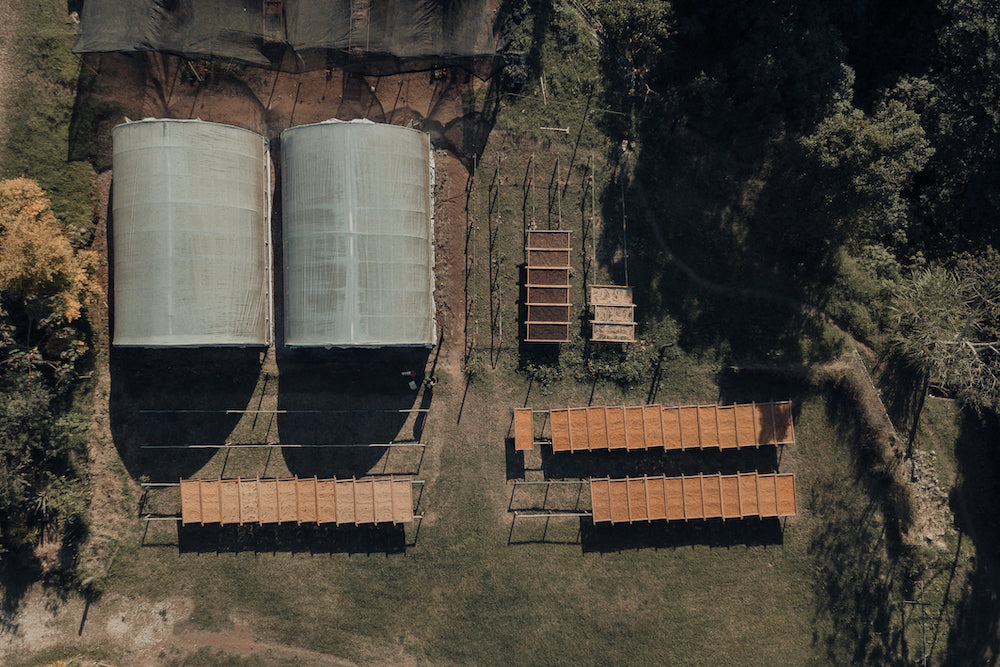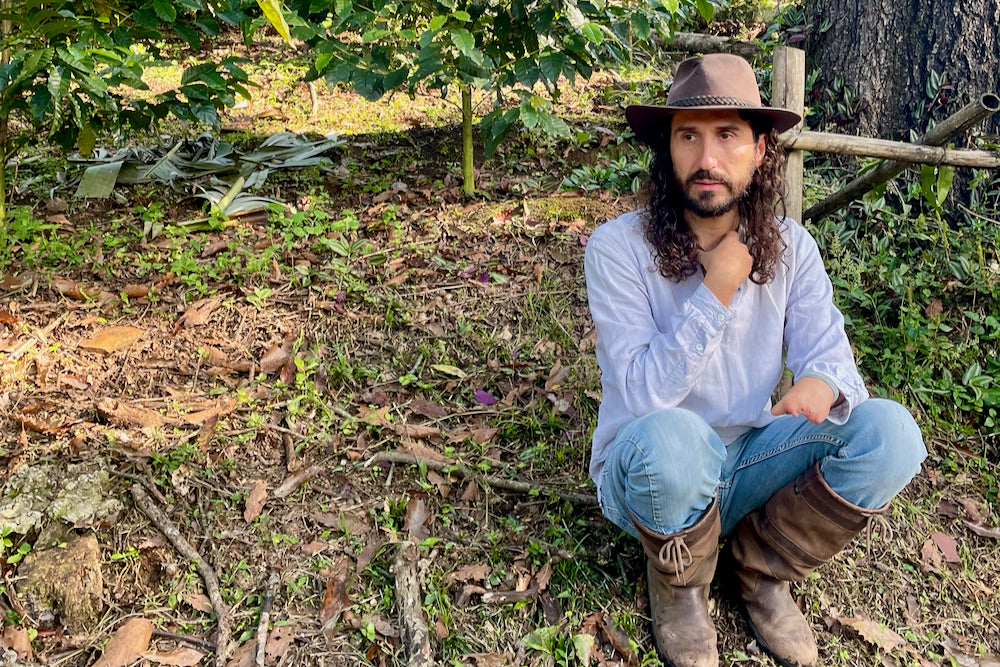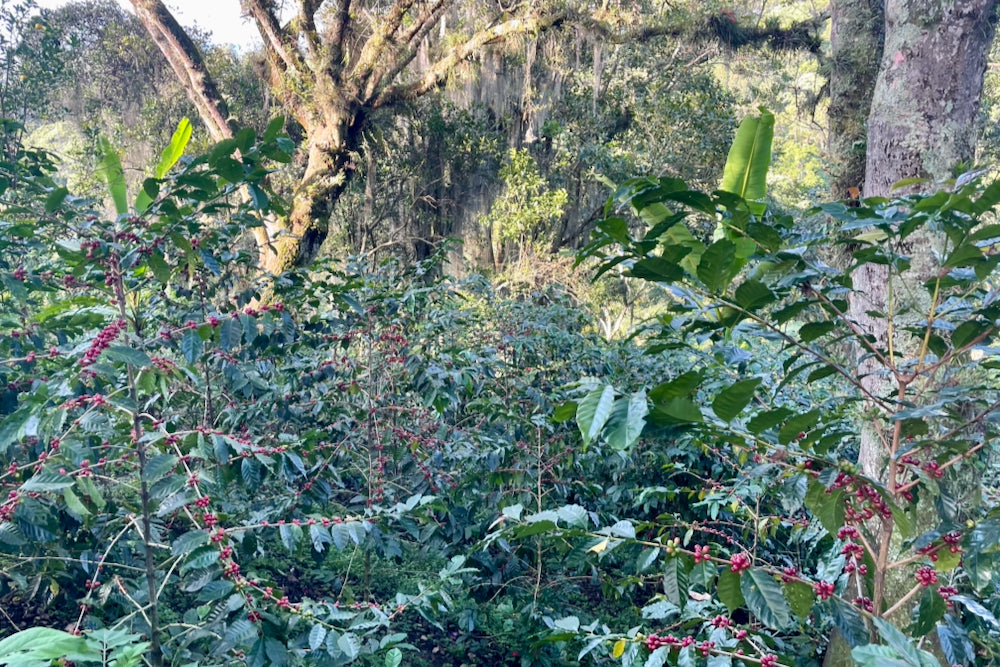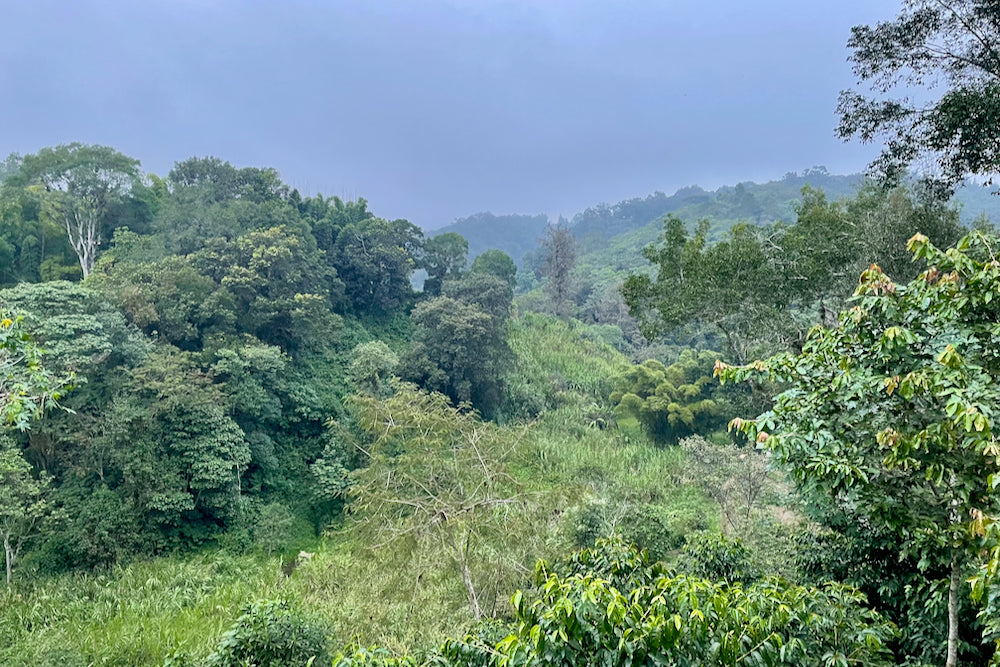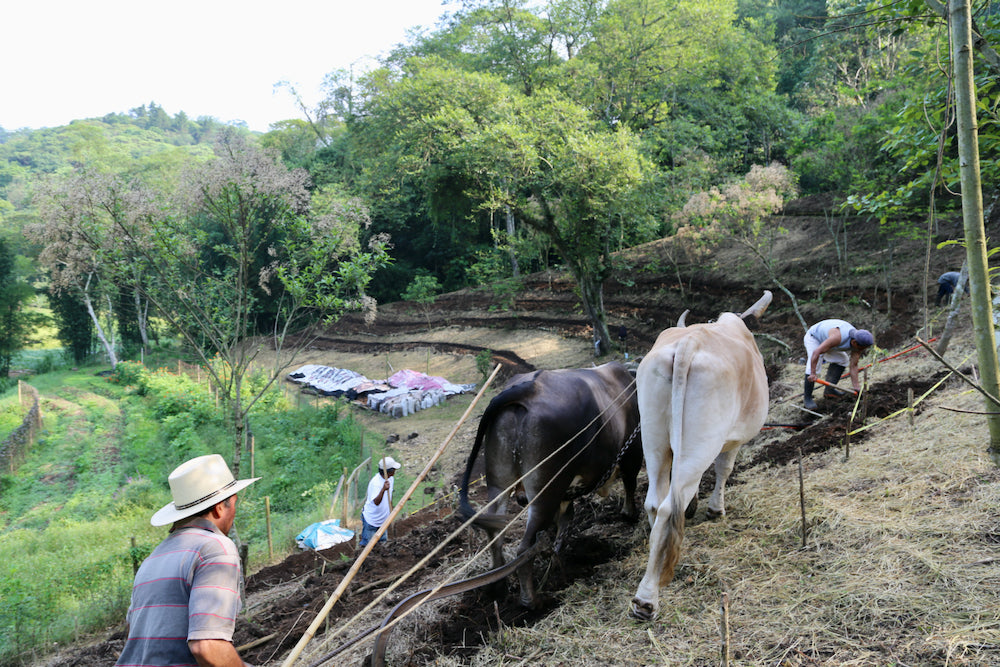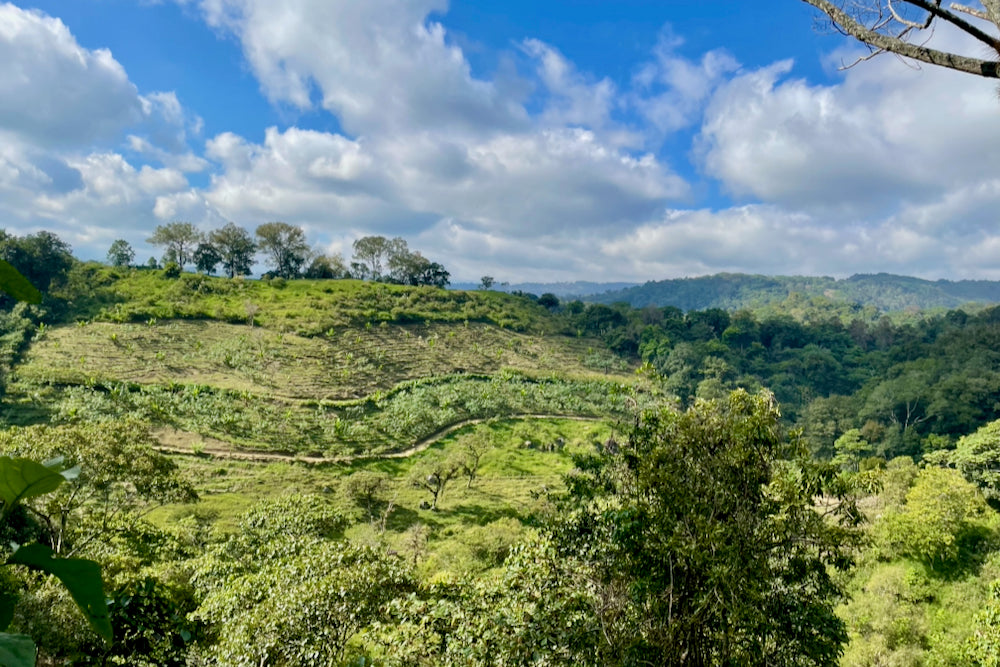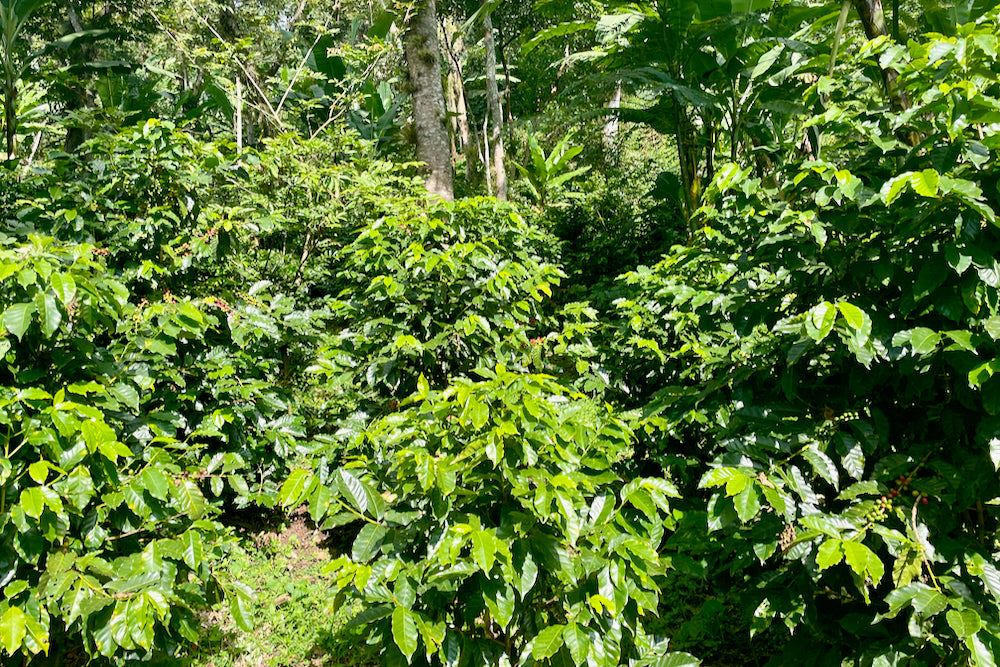El Equimite is located in Coatepec in the Veracruz region of Mexico. Veracruz is a traditional coffee producing centre for Mexico, but the owner of El Equimite, Gibrán Cervantes, has taken an anything but traditional approach.
Reimagining what coffee production can be, Gibrán has implemented Biodynamic processes in the farm, which produces not just coffee but a range of other crops. As well as the farm, Gibrán's work extends into supporting other producers in accessing 'speciality quality' buyers and in teaching more about agronomy and biodynamic practices. Haven't heard of Biodynamic farming or coffee before? Why not take a moment to read our article explaining a little more about it here.
Coatepec is often called the coffee capital of Mexico and is home to a number of coffee producers however the name Coatepec doesn't actually have anything to do with coffee - in the Nahuatl language, coati means serpent and tepeti means hill so push them together and you get 'The Hill of the Snakes', eek.
Gibrán originally purchased a small parcel of land just over 1 hectare in size in 2006 with the objective of developing an organic farm that would be able to feed his family in a healthy way. Along with this project, with his wife and other parents they funded the local school Bios Lilá Montesori with the purpose of having a place for their children to learn and develop.
Fast forward to 2012 and the coffee growing journey of El Equimite was really starting to pick up pace when it transitioned from a conventional farming model (shadeless and chemical inputs) to organic farming and then, a few years later, to biodynamic farming. The farm holds Organic certifications with Mexico, the United States and European Union as well as being been Demeter certified since 2017 - there are only 2 Demeter certified coffee producing farms in Mexico, it's generally still quite rare worldwide nevermind just in Latin America. Please note that although this coffee was produced on a Biodynamic and Organic certified farm, it is not Biodynamic or Organic certified in the UK.
El Equimite is the name of an endemic tree that you can find on the farm, along with 29 other tree species, 14 epiphytes (the most famous epiphyte is the orchid), 25 medicinal plants, and many animals. Biodynamic agriculture means you consider a farm as an autonomous self sufficient environment, which means basically a farm should be able to produce all the resources it needs to thrive. This relies on biodiversity, as much vegetal as animal. They also produce and apply the biodynamic preparations in accordance to a cosmic calendar, according to Rudolf Steiner’s guidelines.
As well as being Biodynamic, Equimite used Keyline design when the farm was laid out. A system developed in Australia, this isn't one we've come across being used in coffee farm planting, but it bears some similarity to the historic crop management techniques of the indigenous people's of Central America.
Focused on the three key "Ms" of soil - Organic Matter, Microorganisms and Minerals - Keyline aims to reshape the land subtly to maximise the productivity. Working from the things which are hardest to change - the climate and overall geography - the team at Equimite took a drone survey of the land and used it to design the positioning of infrastructure (like roads) and planting in such a way as to reduce leeching of the soil by rain and also prevent swamps forming. Different parts of the farm are regularly sampled and sent to a lab for micro-organism and mineral analysis and this feeds back into their continuing work, by adjusting positioning and types of non-coffee plants which they use as well as different treatments and pruning plans.
32 hectares in size with 12 hectares for agroforestry, and 20 hectares dedicated to the restoration and preservation of a healthy local ecosystem, it's quite an amazing farm. In the cultivation part of the farm, there are fruit trees planted among the coffee trees for shade. They are experimenting with 12 different varietals of coffee on the farm including the popular big hitters Geisha, Red Bourbon, Yellow Bourbon, SL28, Typica, Garnica, Caturra, Anacafe 14 and Obata.

